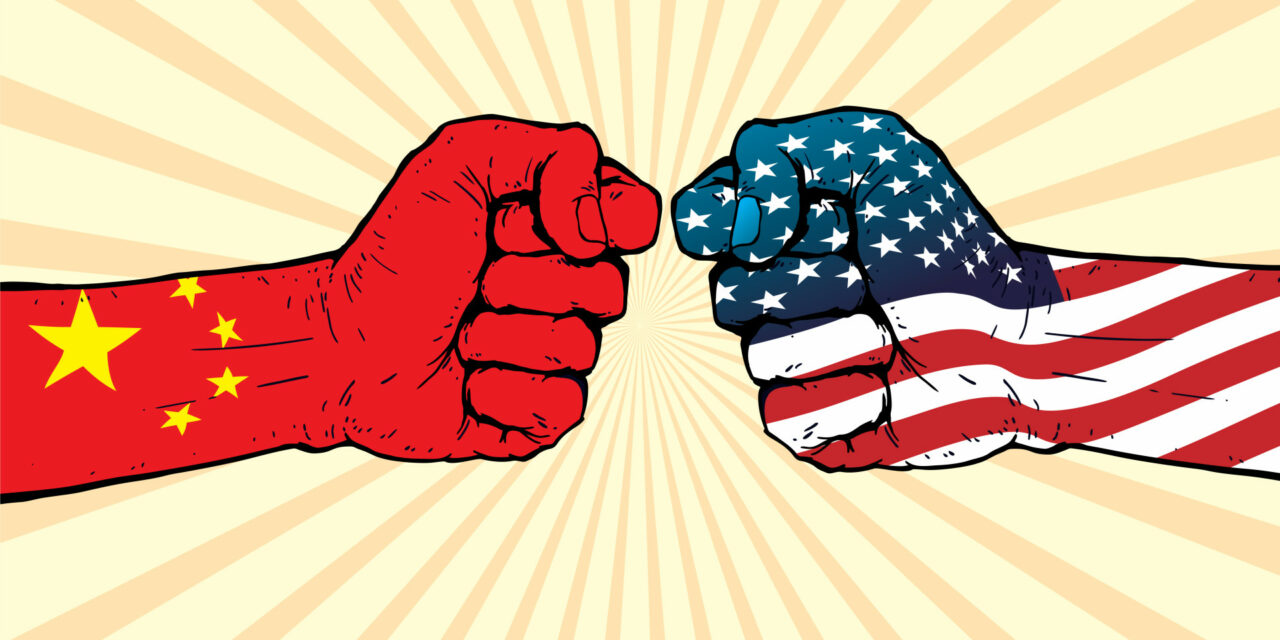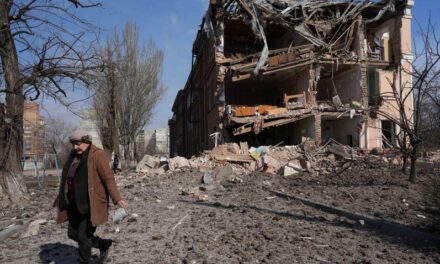More precisely, in the race to redistribute the world, will the Ukrainian (American) - Russian war prove to be enough, or will the players raise the stakes?
According to Zheng Wang, a fellow at the Woodrow Wilson International Center for Scholars and an associate professor at Seton Hall University, instead of wondering how the war between China and Taiwan can serve such and such interests, we should rather draw the appropriate conclusions from the Russian-Ukrainian conflict and realize that just as there are no winners in a war, there are no losers in peace.
In the United States, China, and Taiwan, some politicians—and many others—have a long-cherished dream: they believe they can weaken or defeat China, their main competitor. China also has a dream: the reunification of Taiwan. And Taiwan dreams of independence.
The parties realized how difficult it is to realize the above dreams, and if they do, it can only be done through a war between China and Taiwan. The war in Ukraine was monitored by all three parties, it was a complete simulation and provided many key lessons for the possible conflict with Taiwan. However, there is a terrible trend here, which is that everyone draws the wrong conclusion from it.
In fact, many parallels can be drawn between Taiwan and Ukraine, especially in the dynamics and sources of conflict, so the geopolitical and identity politics similarities between the events in Ukraine and a possible war in Taiwan have led many to consider it.
One option is that war with China over Taiwan is inevitable, and the other is that such a war could be won or managed to mitigate the consequences. Russia's weaker-than-expected performance in Ukraine has led many in Washington to look to it as a direct model, and to believe that defending Taiwan in a war would produce similar results, weakening or even defeating China.
Russia's possible failure has also encouraged some Taiwanese to believe they can resist China or even defeat it in a war. Across the Taiwan Strait, Chinese nationalists openly praise Vladimir Putin's courage and determination, many Chinese nationalists believe that they have already waited too long, and that the People's Liberation Army (PLA) is far more powerful than Russian troops. Taiwan is also much smaller and weaker than Ukraine, so it is believed that it can be "liberated" in a few days, making the dream of China's unification and national rejuvenation come true. Although these are indeed attractive dreams, they are all the more dangerous, especially when considering the possible consequences of a war between China and Taiwan.
A priceless war
Compared to the war in Ukraine, a war between China and Taiwan would have far worse consequences than many currently imagine. It would more likely involve US intervention, unlike the Russo-Ukraine, where the US only supplied military equipment and resources (this is true only de jure, not de facto - ed.). A direct confrontation between the PLA and US troops, the two nuclear powers and the world's two largest economies, is not only unimaginable, but also unpredictable.
As we can see with the Russian-Ukrainian conflict, war has a great impact on the world economy and its markets, especially for oil and food. However, a conflict between China, Taiwan and the United States would cause much more confusion. China's economy is the size of the entire European Union, and China is also the world's largest trading partner with more than 120 countries. Also, since China is the factory of the world, with manufacturing output greater than that of the United States, Japan, and Germany combined, any conflict would disrupt global trade in goods.
Disrupting the supply chain would be devastating.
For example, China produces much of the medicine and personal protective equipment (PPE) that the American people depend on. Any conflict with China would certainly disrupt supplies. In addition, Taiwan is a leading manufacturer of advanced chips worldwide;
only one Taiwanese company—Taiwan Semiconductor Manufacturing Company (TSMC)—represents more than 50 percent of the global chip market.
All of this makes it clear to rational thinking people that a war between China and Taiwan should be avoided and prevented. Moreover, Taiwan is fundamentally indefensible; many people disagree with this, yet this is the sad reality, especially when we think of Taiwanese civilians.
Taiwan's destiny is geography. Compared to Ukraine, which is the second largest country in Europe, it is only slightly larger than Maryland and seventeen times smaller than Ukraine. Russia has trouble supplying the war front in Ukraine, but China will have no trouble in Taiwan. Also, Taiwan would be very easy to isolate, since it really is an island, there are no easily accessible escape routes like in Ukraine, since it is surrounded by water. In addition, it is too close to China, and the narrow strait, 100 miles wide, makes it extremely difficult for it to have an effective missile defense.
China is the world's second-largest economy, with vast human and material resources, all of which would be focused on a collectively agreed-upon, strong vision of reunification. This would be a war that China has been preparing for since 1949. The PLA has built several models of its major military targets, such as a major military airport in Taiwan and even the presidential office building, and has held numerous military exercises over the past seven decades. Several opinion polls have indicated that the consensus of the Chinese people is strong for national reunification with Taiwan. With decades of education and propaganda, this has become a collective belief and part of national identity as a common goal. In terms of determination, motivation and popular support, Beijing is likely to upset Taipei and Washington DC quite a bit.
For Taiwan, if there is a war, it will cause serious damage, and the Taiwanese people will be the ones who will suffer the most. That is why it is imperative that you fight for peace. Taiwanese society should openly discuss whether it is worth taking a more balanced approach to China, including reducing anti-China sentiment and maintaining a more neutral approach to foreign relations. They could learn a lot from Switzerland, for example, whose main foreign policy principle is neutrality. This would increase Taiwan's security and chances for long-term peace rather than decrease them.
For China, the important lesson of Ukraine should be that the invasion of another democracy is unacceptable for the entire liberal international community (it is questionable whether this will affect China, especially given the bloody wars of the morally weakened USA - ed.). An invasion of Taiwan would have serious consequences and would not bring China what it really wants, just think of the inevitable rebellions and resistance of the Taiwanese people. Moreover, Beijing's dream of becoming a respected world power requires functional relations with the West, so it is in its best interest to avoid all-out confrontation and hostility over Taiwan. Self-reliance and deepening relations with the developing world are important, but they do not replace relations with the West.
And for the United States, policymakers with a long-term strategic view must recognize that using Taiwan to contain or defeat China would be a desirable but extremely dangerous game because the consequences are unpredictable. Even putting the economic implications aside, one of the worst-case scenarios for American strategists would be for China to control Taiwan, which would allow China to exert greater control over the Asia-Pacific region. Moreover, even if a war results in failure and a change in leadership — the best-case scenario for the United States — the next Chinese leadership may be even more nationalistic.
History has shown how defeat and humiliation motivated nationalist responses in China and Russia in recent decades. Why would it be any different after another war?
Some American strategists believe that arming Taiwan could deter the Chinese, but it could also backfire: Arming Taiwan could create a security dilemma, fuel more conflict, and accelerate escalation between China, Taiwan, and the United States.
China has made it clear that the red line for it is arming Taiwan with advanced offensive weapons and sending US troops to Taiwan (sound familiar? - ed.).
While the world saw the consequences of the war in Ukraine (perhaps not even today - ed.), all three parties should acknowledge that a war over Taiwan would be unpredictable and ultimately unaffordable. Only after accepting this can action be taken to prevent war. Because only with peace can we all win.
Source: The National Interest
Featured image: Getty Images












